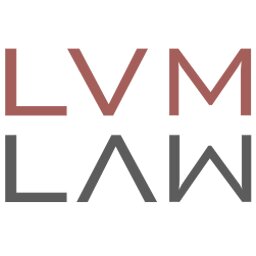Best Telecommunications and Broadcast Lawyers in City Hall
Share your needs with us, get contacted by law firms.
Free. Takes 2 min.
List of the best lawyers in City Hall, Singapore
About Telecommunications and Broadcast Law in City Hall, Singapore:
Telecommunications and Broadcast Law in City Hall, Singapore governs the regulation and licensing of telecommunications and broadcasting services in the country. This area of law covers issues such as spectrum management, licensing requirements, content regulation, competition policies, and consumer protection.
Why You May Need a Lawyer:
You may need a lawyer in the field of Telecommunications and Broadcast if you are facing issues related to licensing requirements, regulatory compliance, contract disputes, intellectual property rights, or consumer complaints. A lawyer can provide legal advice, represent you in negotiations or disputes, and help ensure that your rights are protected.
Local Laws Overview:
In Singapore, the Infocomm Media Development Authority (IMDA) is the regulatory body responsible for overseeing the telecommunications and broadcasting industries. The Broadcasting Act and the Telecommunications Act are the primary legislations that govern these sectors, with additional regulations and guidelines issued by the IMDA.
Frequently Asked Questions:
1. What are the licensing requirements for telecommunications and broadcasting services in City Hall, Singapore?
Telecommunications and broadcasting services in Singapore require licenses issued by the IMDA. The licensing requirements vary depending on the type of service and the scale of operations.
2. How are content regulations enforced in City Hall, Singapore?
The IMDA imposes content regulations on broadcasters to ensure that content complies with local standards and values. Broadcasters must adhere to the Singapore Broadcasting Content Code, which sets out guidelines for acceptable content.
3. Can I file a complaint against a telecommunications or broadcasting service provider in City Hall, Singapore?
Yes, you can file a complaint with the IMDA if you have issues with a telecommunications or broadcasting service provider. The IMDA investigates complaints related to service quality, billing disputes, and other consumer issues.
4. What are the penalties for non-compliance with telecommunications and broadcasting regulations in City Hall, Singapore?
Non-compliance with telecommunications and broadcasting regulations can result in fines, license revocation, or other penalties imposed by the IMDA. It is important to ensure that you are in compliance with all relevant regulations to avoid legal consequences.
5. Are there any restrictions on foreign ownership of telecommunications and broadcasting companies in City Hall, Singapore?
Yes, there are restrictions on foreign ownership of telecommunications and broadcasting companies in Singapore. Foreign companies must obtain approval from the IMDA before operating in these sectors.
6. What are the key provisions of the Telecommunications Act that are relevant to businesses in City Hall, Singapore?
The Telecommunications Act regulates the licensing, operation, and management of telecommunications services in Singapore. Key provisions include spectrum allocation, interconnection requirements, and competition policies.
7. How can I protect my intellectual property rights in the telecommunications and broadcasting industries in City Hall, Singapore?
It is important to register your intellectual property rights, such as trademarks or copyrights, to protect them from infringement in the telecommunications and broadcasting industries. A lawyer can help you navigate the process of registering and enforcing your intellectual property rights.
8. Can I negotiate contracts with telecommunications and broadcasting service providers in City Hall, Singapore?
Yes, you can negotiate contracts with telecommunications and broadcasting service providers in Singapore. It is advisable to seek legal advice when negotiating contracts to ensure that your rights are protected and that the terms are favorable to you.
9. How can I stay informed about changes in telecommunications and broadcasting regulations in City Hall, Singapore?
You can stay informed about changes in telecommunications and broadcasting regulations by regularly checking the IMDA website for updates, subscribing to industry newsletters, or seeking advice from legal professionals who specialize in this area of law.
10. What should I do if I am facing a legal dispute in the telecommunications and broadcasting industries in City Hall, Singapore?
If you are facing a legal dispute in the telecommunications and broadcasting industries, it is important to seek legal advice from a lawyer who has experience in this area of law. A lawyer can assess your situation, provide guidance on your legal rights, and represent you in negotiations or court proceedings.
Additional Resources:
For further information on telecommunications and broadcasting regulations in Singapore, you can visit the Infocomm Media Development Authority (IMDA) website at www.imda.gov.sg. The IMDA provides resources, guidelines, and updates on regulatory changes in the industry.
Next Steps:
If you require legal assistance in the field of Telecommunications and Broadcast in City Hall, Singapore, it is advisable to contact a law firm or legal professional who specializes in this area of law. They can provide tailored advice and representation to help you navigate the complexities of telecommunications and broadcasting regulations in Singapore.
Lawzana helps you find the best lawyers and law firms in City Hall through a curated and pre-screened list of qualified legal professionals. Our platform offers rankings and detailed profiles of attorneys and law firms, allowing you to compare based on practice areas, including Telecommunications and Broadcast, experience, and client feedback.
Each profile includes a description of the firm's areas of practice, client reviews, team members and partners, year of establishment, spoken languages, office locations, contact information, social media presence, and any published articles or resources. Most firms on our platform speak English and are experienced in both local and international legal matters.
Get a quote from top-rated law firms in City Hall, Singapore — quickly, securely, and without unnecessary hassle.
Disclaimer:
The information provided on this page is for general informational purposes only and does not constitute legal advice. While we strive to ensure the accuracy and relevance of the content, legal information may change over time, and interpretations of the law can vary. You should always consult with a qualified legal professional for advice specific to your situation.
We disclaim all liability for actions taken or not taken based on the content of this page. If you believe any information is incorrect or outdated, please contact us, and we will review and update it where appropriate.













